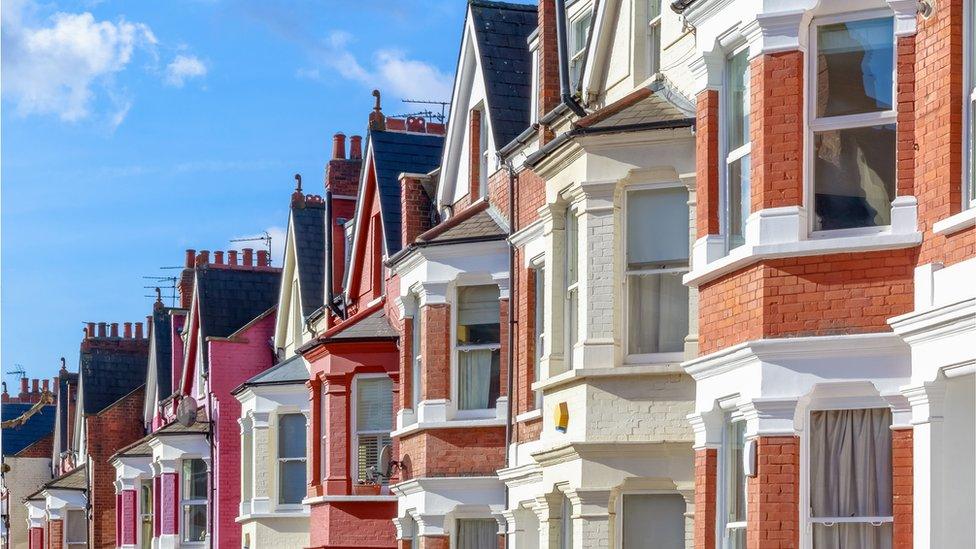The Peckham primary school where most children are homeless
- Published
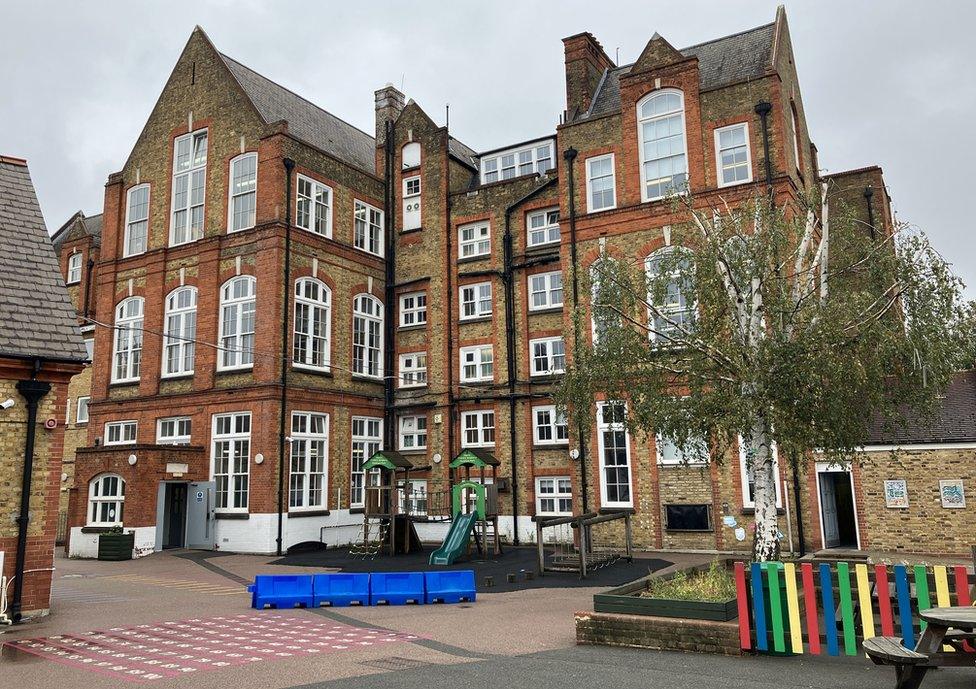
Harris Primary Academy Peckham Park has recently merged two sites into one
The large majority of pupils at a south London school are homeless, according to its head teacher.
Harris Primary Academy Peckham Park has nearly 300 students, all of whom receive free uniform, trips and meals.
English councils spent a record £1.74bn on temporary accommodation for homeless people in the year to March 2023.
Marie Corbett said: "It's really shocking to understand that this is London, a capital city, and we've got that level of poverty and deprivation."
The executive principal added: "That was actually really upsetting and and quite appalling to understand and that has become our norm, unfortunately, so we expect that.
"We're quite surprised when we find a family who aren't experiencing really difficult situations at school now."

Marie Corbett says many parents are struggling
In the week it was revealed that one in four working parents in London struggle to feed their families, Harris Primary Academy Peckham Park said it provides food parcels for some parents.
The school conducted a survey in which most families described themselves as living in "non-secure tenancies". This can range from sofa surfing with friends to living in B&Bs and hostels.
Ms Corbett says this means that "they've got no idea when they're going to be moved from that flat, house or room, which is hugely stressful for them".
She said: "We've also got a large number of families that are going between accommodations. Many of our children go home on an evening and they don't know whether they're going home to the same house, so it isn't a home.
"They don't have that security, they don't go home and have a nice meal, sat at a table with their family, and they certainly don't have their own little bedroom where they've got their safe space, their toys, they have a nice bedtime story with whoever looks after them.
"For many of our children, they go home into a crisis situation with grown-ups who are who are pushed to their limits and might be suffering from depression as a result of the situation that they're in."
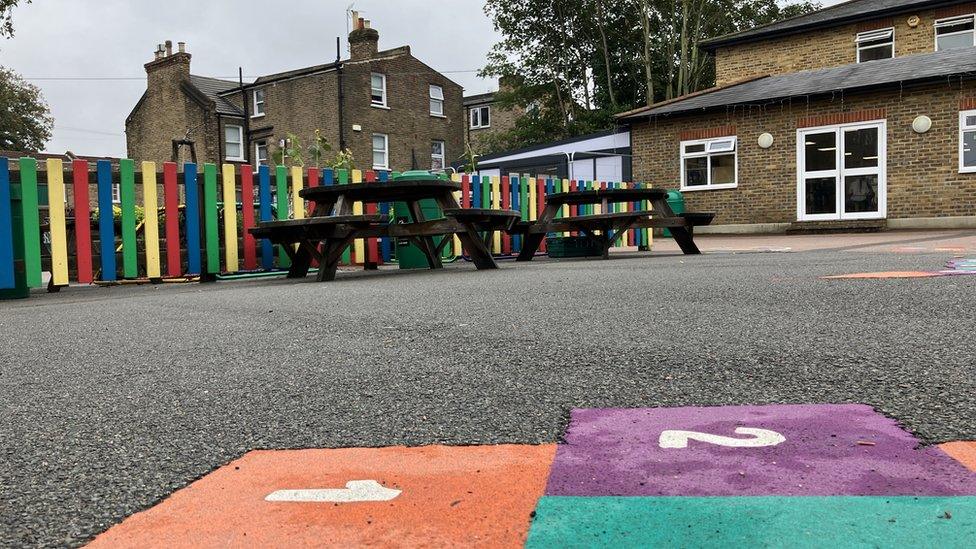
Parents are not expected to pay for school trips
Kelly Greig is one of the parents who lives in temporary accommodation with her daughter and spends all of her time "worrying when we're going to get that dreaded phone call to say 'you've got to go, you're moving here'."
She said: "It's very hard, it's very emotional. I just want somewhere that I can call home for me and my child.
"It's very stressful being in one room and I never get any time to myself; she hasn't got any time to herself. We're always on top of each other so it is hard, but we just have to make the best we can do.
"My mental health since I've been there has really suffered. It's a day-to-day struggle, basically."
Having somewhere Kelly could call home would be "amazing" and "would be like I've won the lottery".
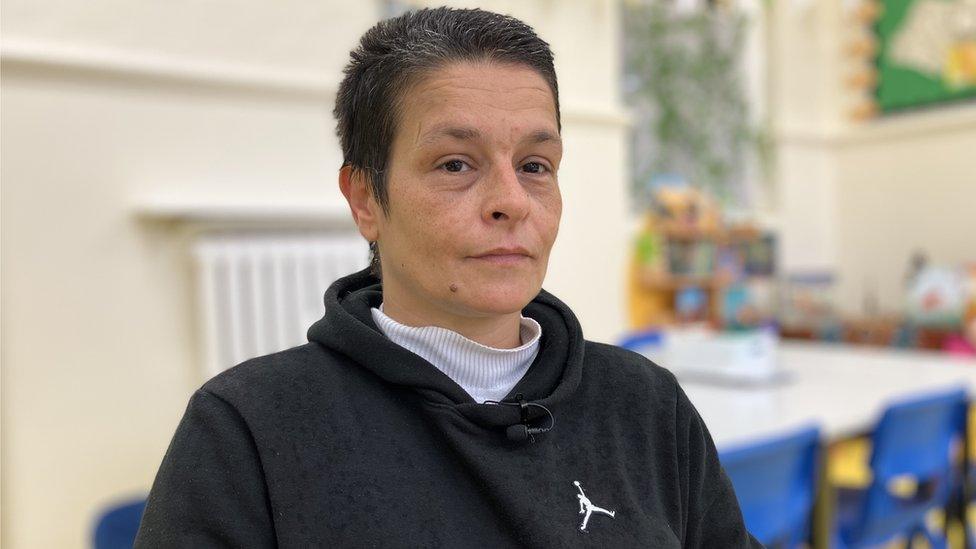
Kelly Greig said getting somewhere she could call home would be "like I've won the lottery"
She added: "The school has played a very big part. They've helped me come a long way in 10 months with my mental health, my housing and mine and my daughter's wellbeing.
"I was really surprised. It is a brilliant school."
Chantelle works as the school's special needs co-ordinator but spends much of her time dealing with housing issues.
She said: "You can get a child who's withdrawn and within themselves, generally, because of the overcrowded nature of their property.
"There's no time or space for a child to do their homework, to do their learning, to just have some time to themselves, so that impacts them when they are in school because they feel left out and they feel that they're behind."
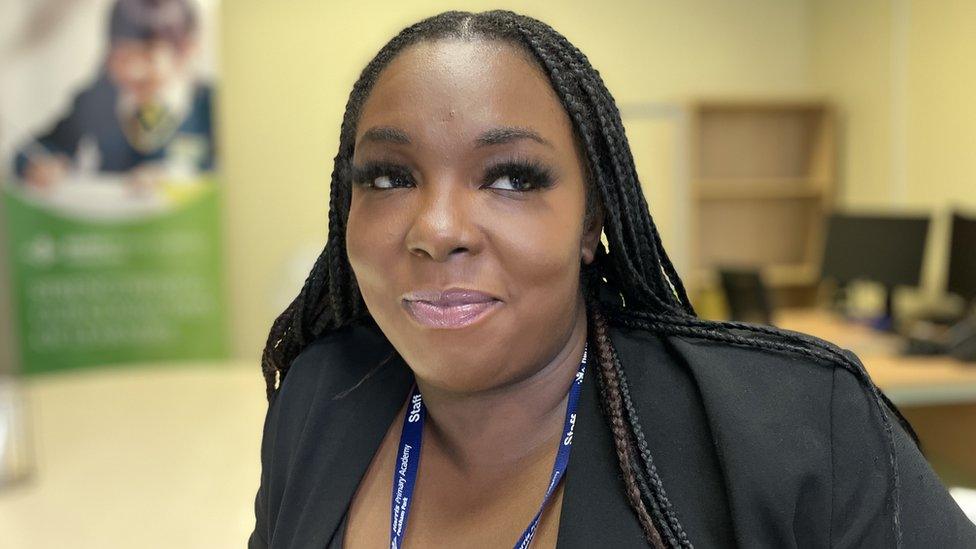
Chantelle spends lots of her working week talking to Southwark Council's housing team
She added: "The most difficult aspect of my job is probably the emotional baggage that I'm carrying because I see a lot of families and I see the turmoil that they're going through and it does affect me.
"I take it home. I try to leave it at work but I'm only human."
Ms Corbett agrees the situation is hard for staff. She said: "It takes its toll on all of us.
"Some weeks it's a real challenge to get through our normal jobs and for me to run the school. It's really upsetting.
"You want to know that they're going home and are happy, That's not always the case."
Councillor Helen Dennis, cabinet member for new homes and sustainable development at Southwark Council, said: "It is appalling that so many children and families are suffering the human cost to the country's spiralling housing crisis.
"The government's welfare reforms, coupled with astronomical rents in the private sector, are forcing record levels of people into great difficulty and insecurity.
"Of course the government also needs to get serious about funding and building homes for social rent, but in the meantime, we will continue to do everything we can."

How is homelessness defined?
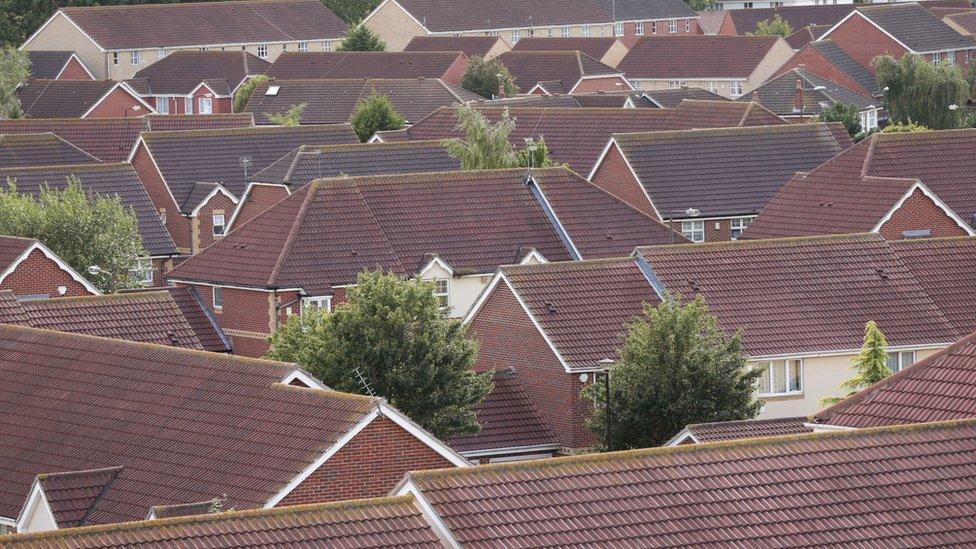
These circumstances are examples of homelessness, according to the government:
Rooflessness: without a shelter of any kind, sleeping rough
"Houselessness": with a place to sleep but temporary, in institutions or a shelter
Living in insecure housing: threatened with severe exclusion due to insecure tenancies, eviction, domestic violence, or staying with family and friends - known as "sofa surfing"
Living in inadequate housing: in caravans on illegal campsites, in unfit housing, in extreme overcrowding

Felicity Buchan, minister for housing and homelessness, said: "Everyone has a right to a safe and decent place to call home. That's why we have set out an ambitious long-term housing plan to build the homes that Britain needs.
"We're spending £2bn over three years to tackle homelessness and get families into permanent accommodation.
"We are committed to increasing the supply of social rented homes, and a large number of the new homes delivered through our £11.5bn Affordable Homes Programme will be for social rent."

Listen to the best of BBC Radio London on Sounds and follow BBC London on Facebook, external, X, external and Instagram, external. Send your story ideas to hello.bbclondon@bbc.co.uk
Related topics
- Published16 October 2023
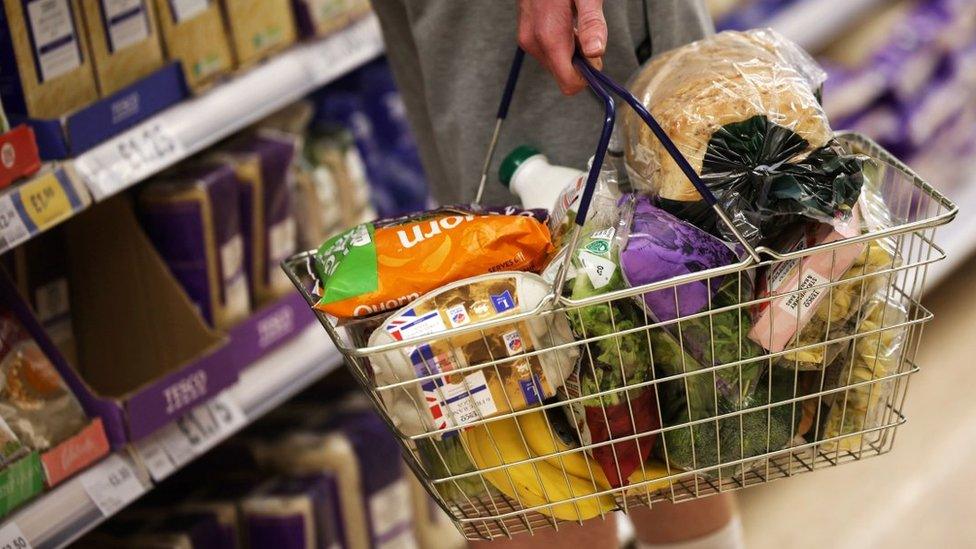
- Published13 October 2023
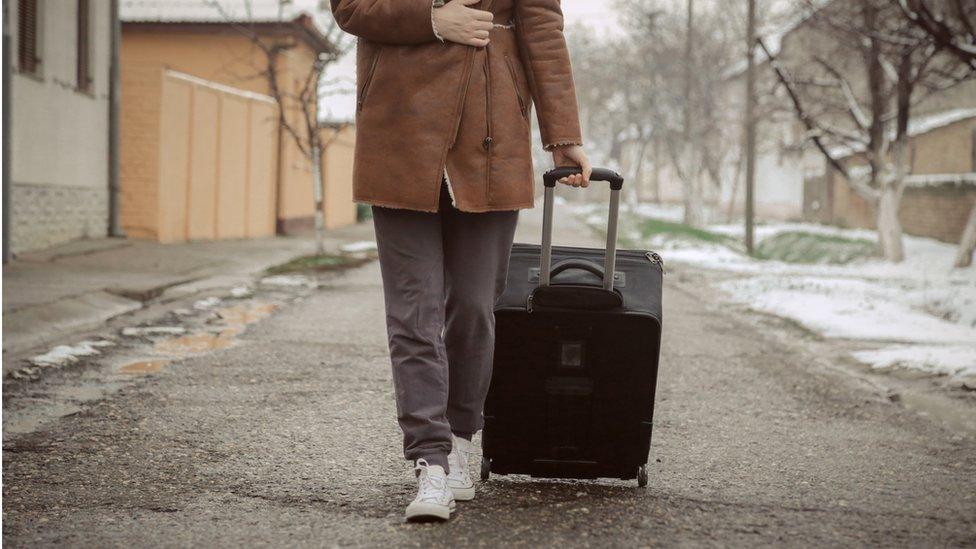
- Published3 August 2023
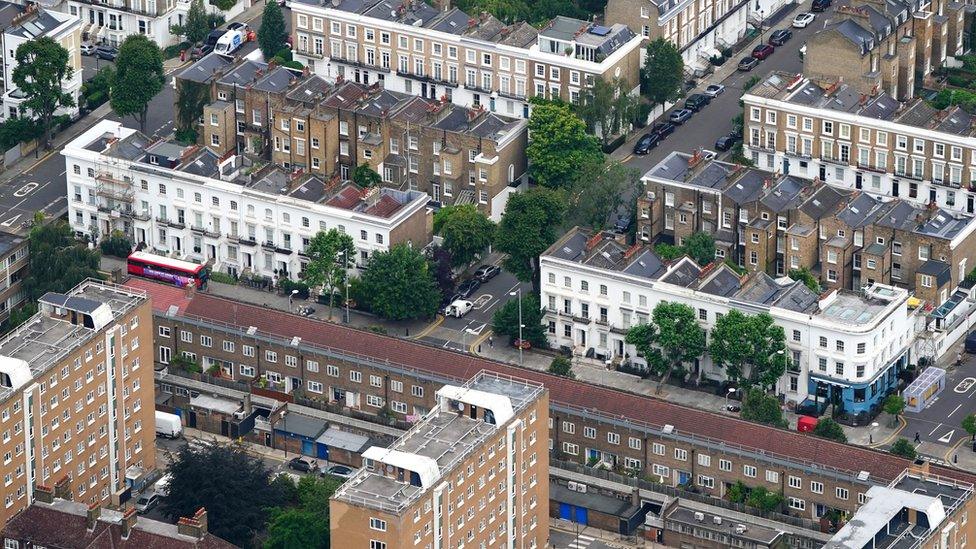
- Published30 September 2022
